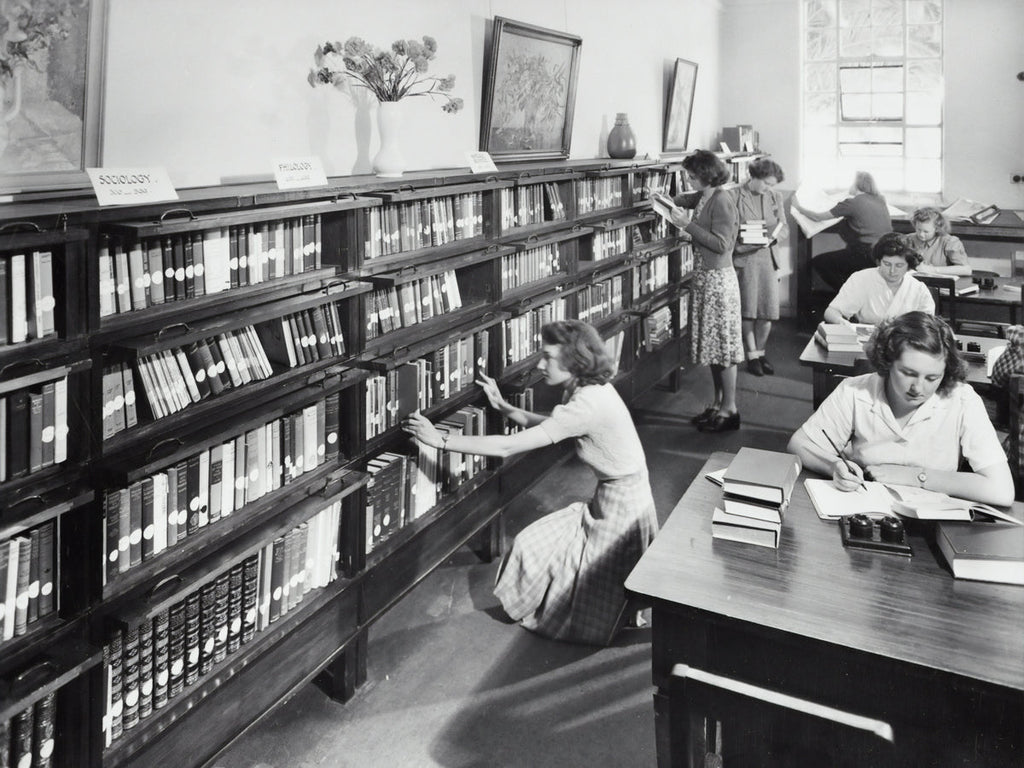SBC Playlist: Phenomenal Women - 11 Songs Inspired By Women Authors

In 2019 we started a series of blog posts focused on music and literature. Morgan Holzer is curating and guest blogging to add to the collection.
From a power ballad based on tragedy to a classic poem disguised as soulful gospel, women are clearly inspirations to each other. In honor of Women’s History Month, here are 11 songs by women artists, influenced by women authors.
Book: Wuthering Heights - Emily Brontë
Song: It’s All Coming Back To Me Now - Celine Dion
But you were history with the slamming of the door
Jim Steinman was highly moved by the novel Wuthering Heights while writing this song. He once compared it to when Heathcliff attempted to dig up Catherine's corpse, saying “I think you can't get much more operatic or passionate than that.” Full disclosure: This is my go-to karaoke song.
Book: Frankenstein - Mary Shelley
Song: Frankenstein - Aimee Mann
Say hello to your new creation
Now it's better than real
It's a real imitation
Aimee Mann wanted to tell a story about “creating a Frankenstein monster of a relationship out of bits and pieces.” Jon Brion’s production only adds to the disjointed feel of the song. Saying it felt unoriginal, Mann later told Stereogum that this was her least favorite track on the album.
Book: Wide Sargasso Sea - Jean Rhys
Song: Wide Sargasso Sea - Stevie Nicks
She burned his house down, saying you may have forgotten me,
But you'll remember this
The novel Wide Sargasso Sea was written as a feminist, anti-colonial prequel to Charlotte Brontë’s Jane Eyre. Stevie Nicks wrote this song after seeing a film adaptation of the novel, calling it "a crazy movie that she loved.”
Book: Beloved - Toni Morrison
Song: Ohio - Patty Griffin ft. Robert Plant
Meet me in the evening, where the river is low
Meet me on the waters of the Ohio
Beloved tells the story of a post-Civil War woman who had fled slavery to settle in Cincinnati. Patty Griffin took Morrison’s novel as inspiration when writing about the Ohio River and its place along the Underground Railroad.
Book: In a Lonely Place - Dorothy B. Hughes
Song: Laurel - Goldfrapp
Strange how he's cold
Behind the smile
In Hughes’ novel, Laurel is an actress who helps track a serial killer in LA. Singer Alison Goldfrapp loves noir fiction, and was deeply inspired by the genre when writing this song. She told The Independent, "I really wanted it to have that feeling with the harpsichord in there and the reverb, and the feeling of being sleepy and losing consciousness, which is how that world seems to feel... I like the idea that the dread doesn't really arrive. And that's a nice feeling in music as well. Sometimes you don't want things to be resolved, or explained."
Book: The Valley of the Dolls - Jacqueline Susann
Song: The Valley of the Dolls - Marina & the Diamonds
In the valley of the dolls we sleep, got a hole inside of me
Living with identities that do not belong to me
Susann’s book is about young women trying to make it in show business. The novel’s protagonists fall prey to scandal, sex, and addiction —”dolls” being a term for amphetamines and barbiturates. Marina was also inspired to write this song after living in Los Angeles, which she called “such an empty place," noting that this song represents “a void that you can't fill with relationships."
Book: Pride and Prejudice - Jane Austen
Song: Oh, Mr. Darcy - The Doubleclicks
There's a good reason that women love jerks
It seems like a fantastic idea at the time
Laser Malena-Webber of The Doubleclicks, two self-ascribed nerd-folk artist sisters, writes “songs about things I think about, which are love, depression, and games and movies." This song is an ode to Colin Firth as the Austen hero, and to how Mr. Darcy has ruined the hearts of young girls worldwide.
Book: Birds of America - Lorrie Moore
Song: Severed Crossed Fingers - St. Vincent
Spitting out guts from their gears
Draining our spleen over years
Found myself with crossed fingers in the rubble there
Numerous songs of Annie Clark, aka St. Vincent, were inspired by the vignettes in Birds of America, an award-winning short story collection by Lorrie Moore. Clark said the song is “from a short story about a woman who reads a story in the newspaper—they’re sifting through a plane crash and find somebody’s severed hand, but the fingers are still crossed, and I thought that was such a great, hilarious, bleak metaphor for life.”
Book: My Ántonia - Willa Cather
Song: Nebraska - Lucy Rose
Nebraska calls my name
The harvest of my love
Lucy Rose, an English singer-songwriter, wrote this song while touring in the US. She had read Cather’s novel a year prior and found it extremely inspirational. She told The Independent she wanted to “make something beautiful and emotive but also tell a story that life can be tough and it doesn't always go to plan.”
Book: To Kill a Mockingbird - Harper Lee
Song: Atticus - The Noisettes
The constellations tonight are so fiercesomely bright, my love
I have no fear left, ‘cause I am Atticus now
When Scout’s father told her it was a sin to kill a mockingbird, the bird was a stand-in for goodness and hope. The Noisettes recognize this in the opening to their song Atticus, saying that you need the music of a mockingbird in your heart to survive.
Poem: Phenomenal Woman - Maya Angelou
Song: Phenomenal Woman - Ruthie Foster
It’s in the reach of my arms, the span of my hips,The stride of my step, the curl of my lips.
I’m a woman, Phenomenally.
Ruthie Foster takes Maya Angelou’s original poem verbatim and delivers a raw and soulful interpretation. Of the gospel-infused track Foster has said, “This song and poem reminds me that regardless of where I am in my day, in my heart, and in my life, that I matter, and I am enough. So wear it proudly! To all of us. We are all phenomenal!”
